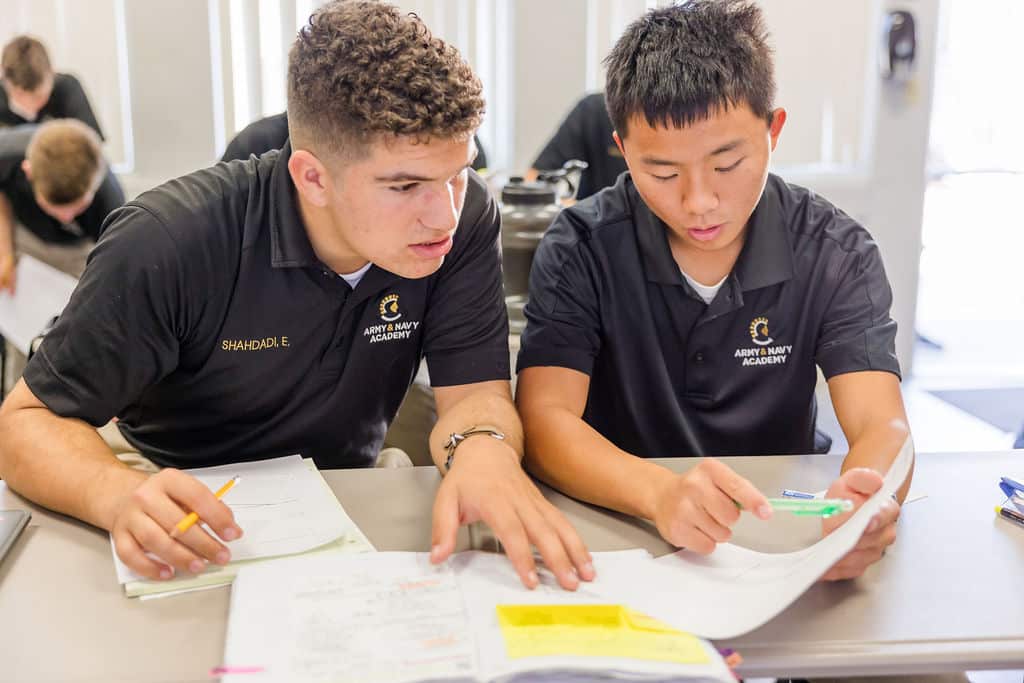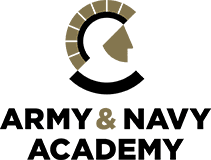
Boarding schools offer a variety of academic programs that challenge students and take learning to the next level. Learn more about how to maximize academic programs offered at U.S. boarding schools. In addition, explore commonly asked questions about how math and science are incorporated into STEM classes, specialized electives, clubs, and extracurricular activities.
How to Make the Most of the Academic Programs at Boarding School
- Set academic goals – Setting academic goals will help you maintain your focus, so make the goals as specific as possible. Examples include: increase study time by 30 minutes daily, read one article per month about ways to improve study habits, adopt one new test habit every semester, elevate grade point average to 3.85, and set your sights on the dean’s list.
- Start college prep early – Here are some starters to prepare: visit local and regional college and university campuses, speak with the counseling office at your boarding school and attend all workshops, and begin thinking about college choices in your freshman year.
- Improve study habits – Set a specific timeframe for daily study, a place to study without distractions, and develop good habits when you study with your peers.
- Learn how to manage your time effectively – Establish a set routine that will create balance and help you manage your time effectively. Good time management involves keeping a calendar, being punctual, working against deadlines, and knowing how to balance academics, social, and physical activities.
- Figure out your daily priorities – Begin with your end goal in mind, then think about your top three priorities for the day. This will help you keep your focus, reduce stress and anxiety, and help you achieve your goals.
- Be attentive in class – We know everyone tells you to get enough sleep and exercise, but this is really essential to mental alertness. Also, engage your mind by asking lots of questions.
- Seek out support from faculty – At most boarding schools, the faculty is quite accessible. Some schools offer after-school tutorial periods, evening office hours with faculty, and personalized attention.
- Sign up for tutoring services if needed – If you find a subject challenging, get help through peer tutors or outside tutoring services. At many boarding schools, the counseling office will arrange the tutors for you. They also rely on students or even peer tutors to help students accelerate progress.
- Learn good habits for test taking – It probably goes without saying, but learning how to take exams is important. You will face quizzes, tests, and final exams at boarding school, so it is critical to learn how to improve results. Read up on top habits, compare notes with friends on how they prepare for tests, and ask the faculty about best test prep methods.
- Go on college campus tours – Some boarding schools offer east or west coast or regional campus tours. This is a great opportunity to develop excitement about your academic interests as you explore college majors, campus facilities, and ask questions during your visits to college campuses.
- Expand your horizons – Many boarding schools offer spring trips abroad, as well as a wide range of multicultural activities on campus. In addition, due to the international diversity found on boarding school campuses, you can even have a roommate from another country. Try new clubs, student leadership, and new sports as these activities will have an impact on your enjoyment and enhance your college applications.
- Focus on both mental fitness – Mindfulness, exercise, and sports participation help you maximize your academic progress. Stay active both mentally and physically and take advantage of all of the campus amenities.
- Go beyond the requirements – Spend some time every day reading just for pleasure. It can be fiction, nonfiction, journals, or magazines. Practice math in everyday life situations and enjoy scientific experimentation, special internships, and participate in specialized programs (aviation, computer science, cyber security, unmanned aerial systems, etc.).
- Prepare for the SAT/ACT exams – Many private schools and most boarding schools are typically designated test sites for the ACT and SAT. Benefit from special classes, workshops, and other test prep programs.
- Stay informed – Attending a boarding school gives you a chance to engage in lively discussions on a variety of topics. Stay informed about current events to maximize your understanding and appreciation of academics and how they intersect with your future career interests.
- Attend a boarding school summer camp – Enhance your academics by checking out the summer programs offered at boarding schools. Even if you do not attend high school at a boarding school, there are some stellar leadership camps and summer schools available. Summer is a great time to improve math and science skills in electives like aviation or computer science, where you can apply mathematics and scientific principles and skills directly.
- Find a mentor – Finding a mentor is a key benefit at boarding school. It could be a faculty or staff member or even a top student leader. It will maximize your personal development and growth.
- Get to know alumni– Boarding schools host alumni events and often connect students based on college and/or career interests. Check with the Advancement Department to see how you can get to know an alumnus/alumnae aligned with your college or career goals.
- Utilize college planning services – Take advantage of the college planning services. Boarding schools boast matriculation to top colleges and universities and provide outstanding workshops, including: information sessions for parents, onsite testing, assistance to students with college decision-making, college applications, financial aid application information, and recommendation letters.
- Request recommendation letters early – Position yourself as a strong student to benefit from strong recommendation letters to a college or university of your choice. Ask for them early to allow faculty and administrators to compose strong letters.
Math and Science Boarding Schools
- Are there math and science boarding schools? There are some boarding schools with a strong math and science focus. Look for schools that are college preparatory as well as STEM/STEAM programs. Beyond the curriculum, look at electives, clubs, and programs.
- Are some boarding schools exclusively for science? In order to prepare students for college, boarding schools offer a well-rounded curriculum. This ensures students meet college admission standards for public and private colleges and universities of their choice.
- Are boarding schools good for STEM or STEAM? Most boarding schools offer outstanding programs in STEM (science, technology, engineering, and math). Some also add the arts to create STEAM programs. Boarding schools are known for excellence in academics as well as robust visual and performing arts programs.
- Do military boarding schools offer strong math and science classes? Some military boarding schools are all boys or others are co-educational. Single gender education does focus on how boys and girls learn differently and some military boarding schools are known for their research-based approaches and methods (e.g. Army & Navy Academy is a model school for boys).
- Are some boarding schools all-boys or all-girls and how do they approach math and science? As pointed out previously, single gender education has a number of advantages, but in particular, it allows the school to focus on how girls and boys learn best.
- Do boarding schools require the faculty to hold graduate degrees? Most boarding schools do require graduate degrees and some require teaching credentials as well. Unlike public schools, they typically look for graduate degrees and a high level of knowledge versus requiring a teaching credential. This allows boarding schools to hire some of the best and brightest in their field of study, in a similar way to colleges and universities.
- Are students able to take AP and Honors math and science classes at boarding schools? Boarding schools typically offer a wide range of advanced placement and honors classes. They also provide personalized assistance to not only do well in the classes, but also succeed on the exams. AP and Honors are recommended to enhance your academic records for college, but don’t overdo it. It is more important to do well than to take too many advanced classes.
- Do some boarding schools offer trips to enhance math and science lessons? Trips can include trips in the local area, as well as trips abroad. For example, one year, Army & Navy Academy took students to the Galapagos Islands to do biological research studies.
- What kinds of technology do boarding schools have to help with math and science? Smart boards, iPads, desktop computers, aviation simulators, and much more can be found at boarding school campuses.
- What are some of the best boarding schools for math and science? The list includes: Andover, Exeter, Groton, Lawrenceville, Webb, Cranbrook, International School of Minnesota, Princeton International School of Math and Science, Oregon Episcopal School, Hockaday, Northfield Mount Hermon, Thomas Jefferson School, San Domenico School, United World College-USA, Illinois Mathematics and Science Academy, Oklahoma School of Mathematics and Science, Leman Manhattan Preparatory School.
If you are considering a college prep military boarding school, check out schools in your region such as: Admiral Farragut (Florida) Fishburne, Fork Union, Hargrave, Randolph Macon, Massanutten (Virginia), Missouri Military Academy (Missouri), St. John’s Northwestern (Wisconsin), Marine Military Academy (Texas), Valley Forge (Pennsylvania), St. Catherine’s Academy (Anaheim), Culver (Indiana) and Army & Navy Academy (California).
For students currently enrolled at a boarding school, make the most out of your time by following the 20 tips provided. If you are new to the world of boarding schools and will be applying, make sure you do your research and ask lots of questions to find the best match. Boarding schools vary widely across the U.S. in terms of their mission, values, and vision, as well as tuition costs. If you want to gain a competitive edge to get into The Ivy League, a top public or private university, or a service academy (USMA, USNA, USCGA, USMMA, USAFA), attending a boarding school has a number of benefits and advantages.
